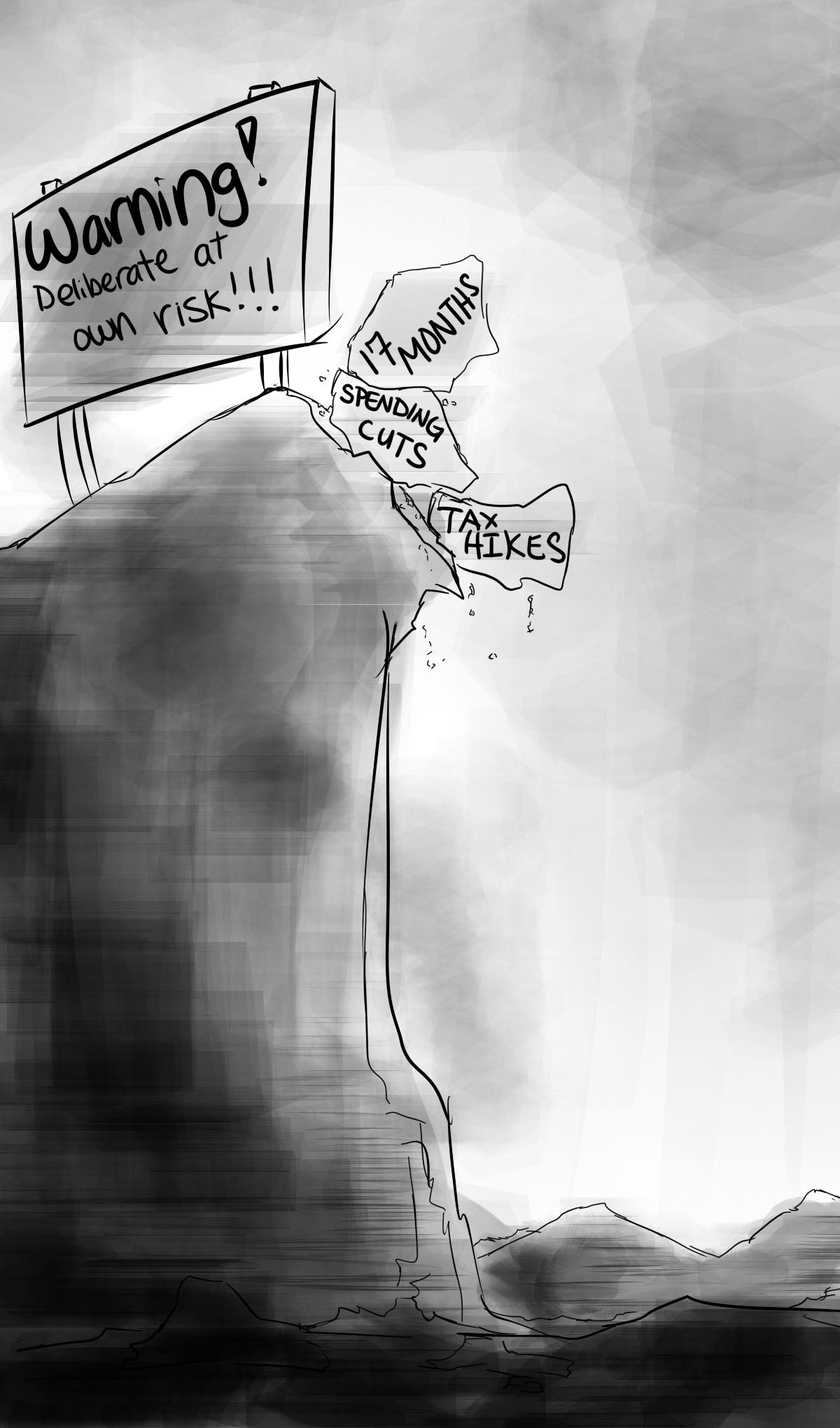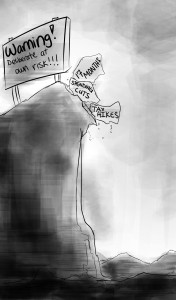Congrssional gridlock must come to an end soon

 With only three hours left before the New Year, the Senate negotiated a compromise to avert the much-feared fiscal cliff. Missing the deadline by just over two hours, the resolution provoked anxiety in households across the nation. Despite having 518 days to come up with the decision and 12 years to anticipate the end of the Bush tax cuts, the Senate’s final overdue compromise was belated and disappointing in that it only answers short term concerns. With the bill, income tax rates were allowed to revert to pre-Bush tax cut levels for those earning $450,000 or more; this is a significant development in such an affluent community like Palos Verdes. A budget plan, as well as the decision of whether or not to raise the debt ceiling, has been postponed until March.
With only three hours left before the New Year, the Senate negotiated a compromise to avert the much-feared fiscal cliff. Missing the deadline by just over two hours, the resolution provoked anxiety in households across the nation. Despite having 518 days to come up with the decision and 12 years to anticipate the end of the Bush tax cuts, the Senate’s final overdue compromise was belated and disappointing in that it only answers short term concerns. With the bill, income tax rates were allowed to revert to pre-Bush tax cut levels for those earning $450,000 or more; this is a significant development in such an affluent community like Palos Verdes. A budget plan, as well as the decision of whether or not to raise the debt ceiling, has been postponed until March.
For taxpayers, the wait was nerve-wracking. According to the Congressional Budget Office’s predictions in late November, if America were to fall off the fiscal cliff, the unemployment rate would plummet to 9.1 percent in the fourth quarter of 2013. Furthermore, the across-the-board tax hikes and education cuts would impose an increased burden on the poor and middle class. As a result, American households were anxious and, to the economy’s detriment, afraid to spend. The delay made it near-impossible to plan for the 2013 fiscal year. Gridlock is to blame for this holdup; Congress let its citizens stew in economic distress because of partisanship.
The legislative tax compromise was a let-down because it only deals with certain aspects of the postponed decisions that must be made regarding expenditures, entitlements and the debt ceiling. Many GOP members were unhappy with the compromise, as its focus was tax increases; efforts to cut spending were lacking. This undermines the ‘bargaining’ aspect of the bill and instead gives it a more biased feel. Indeed, Palos Verdes’ former district representative Dana Rohrabacher voted no on the bill because of, according to the OC Register, “the absence of spending cuts.” This is not to say that increased taxes on the rich are out of line; merely that tax increases sans spending cuts are not indicative of fairness. The situation raises some questions as to why Congress spent nearly 17 months deliberating without successfully settling in a way agreeable to both parties.
Palos Verdes Congressman Henry A. Waxman agrees that partisanship has taken its toll.
“The last Congress was the most partisan – and least productive – in decades… When Democrats and Republicans work together, we were able to enact good laws,” Rep. Waxman said.
The representative continued to explain that, of the 31 bills sent from the Energy and Commerce Committee to the House floor last year without Democratic support, only two became law. In contrast, however, of the 33 Energy and Commerce Committee bills with bipartisan support, 18 became law.
We cannot wait for government officials to bicker amongst themselves and conclude in the eleventh hour. The March budgetary decisions must be dealt with by a proactive, cooperative Congress.
“If we don’t find a way to deal with these issues, our recovery and our national security will be threatened,” Rep. Waxman said.

